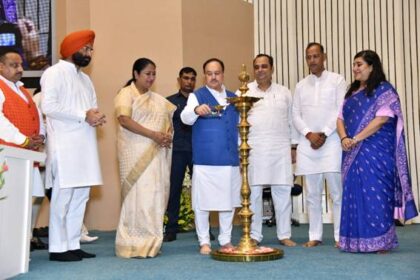The total number of active cases across the country stands at 1,009, shows the country’s central COVID-19 dashboard
Over 100 new coronavirus cases have emerged in Delhi amid a resurgence in the infectious disease that has claimed millions of lives across the world since 2020.
The total number of active cases across the country stands at 1,009, shows the country’s central COVID-19 dashboard. Capital Delhi has at least 104 active cases, out of which 99 were reported in the last week.
However, there is no need to panic, Chief Minister Rekha Gupta has said, asserting that hospitals are prepared to tackle any further surge in cases. The minister said the cases were reported by private labs and that the latest variant has normal influenza-like symptoms.
Kerala tops the list of states fighting the latest surge with 430 coronavirus cases, followed by Maharashtra with 209 cases. Delhi stands third. Gujarat has 83 cases, Karnataka 47, Uttar Pradesh 15, and West Bengal 12.
At least four deaths due to Covid have been reported from Maharashtra, two from Kerala, and one from Karnataka.
No active case has been reported from Andaman and Nicobar, Arunachal Pradesh, Assam, Bihar, Himachal Pradesh, Jammu and Kashmir.
Covid cases in India had subsided after free and rapid vaccination was carried out in all age groups, providing relief from strict containment rules.
The Sudden Rise in Cases
Until recently, Delhi had seen a steady decline in COVID cases, and the virus had largely disappeared from everyday conversation. Public transport returned to full capacity, mask mandates were relaxed, and schools, offices, and shopping centers reopened without restrictions. However, with 99 new infections being reported within just seven days, health officials are once again on alert.
While no alarming hospitalizations or deaths have been reported so far, the spike has triggered increased testing and surveillance, particularly in localities where the new cases have been concentrated. The Delhi government has advised people with flu-like symptoms to get tested and to isolate immediately if found positive.
Understanding the Context
COVID-19 is a virus that has proven its ability to mutate and reappear in waves. Although India has made significant progress in vaccination, and a large portion of the population has either been vaccinated or has acquired some immunity from previous infections, the virus continues to pose a threat, especially to the elderly and those with underlying health conditions.
Experts suggest that the recent rise in cases might be linked to a new subvariant of Omicron or increased social gatherings. Another possibility is that the change in weather conditions during the monsoon season has made people more vulnerable to respiratory infections, including COVID-19.
Should You Be Worried?
The current numbers, though rising, are still relatively low. Medical experts urge calm but caution. While there is no immediate reason for panic, the trend needs to be closely watched. A slow and silent increase in infections, if ignored, can escalate into a larger outbreak — as history has shown multiple times.
Dr. Rajiv Kumar, a senior epidemiologist based in Delhi, noted, “These are early indicators. If people ignore them and continue behaving as if the pandemic is over, we could be looking at a localized outbreak.”
Government Measures and Public Response
In response to the increase, the Delhi Health Department has issued advisories to hospitals to stay prepared and report any uptick in admissions related to COVID-like symptoms. Random testing is being carried out at airports, railway stations, and major markets to monitor the situation.
The public response has been mixed. While some have resumed wearing masks and avoiding crowded places, many continue with their daily routines as if nothing has changed. Malls and metro trains remain packed, and few people are seen adhering to social distancing norms.
What You Can Do
Whether or not this small rise in cases leads to something bigger, it’s always better to stay cautious. Here are a few simple steps you can take to protect yourself and others:
- Wear a mask in crowded or poorly ventilated areas.
- Sanitize your hands regularly.
- Avoid large gatherings, especially if feeling unwell.
- Get tested if you develop symptoms like cough, fever, or loss of taste/smell.
- Keep your vaccinations up to date, including booster doses if eligible.
Looking Ahead
Delhi’s health infrastructure is far better equipped now than during the earlier waves of COVID-19. However, complacency can undo the progress made. This recent uptick should serve as a reminder that while the worst may be behind us, the virus hasn’t vanished.
Public cooperation, responsible behavior, and timely government intervention can prevent another wave. For now, Delhi must walk the fine line between caution and normalcy — with eyes wide open.
Also Read : Colonel Sofiya Qureshi’s Family Attends PM Modi’s Roadshow in Vadodara, Gujarat








